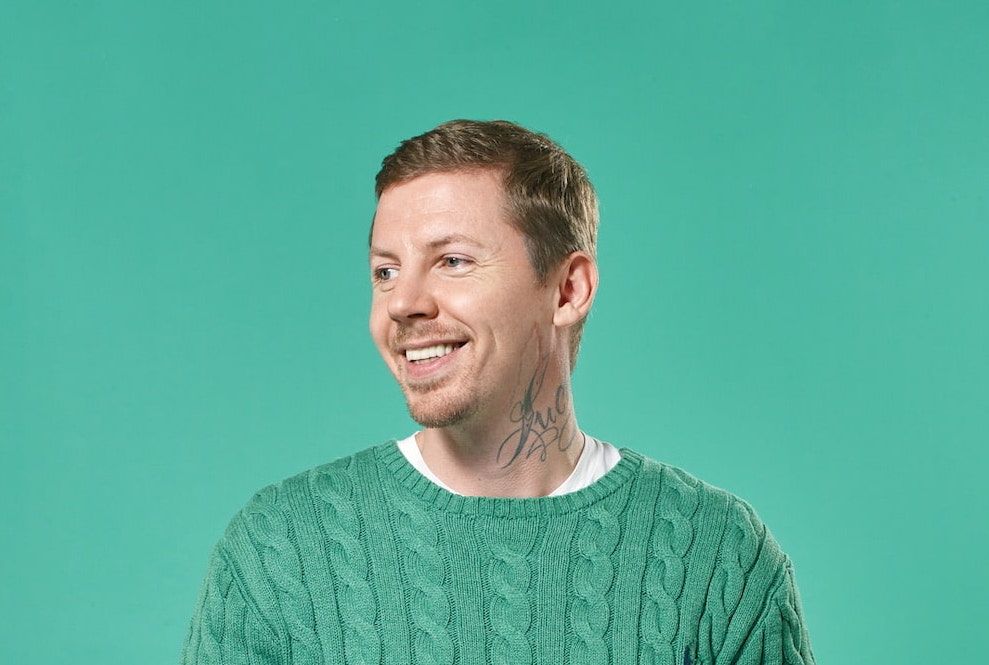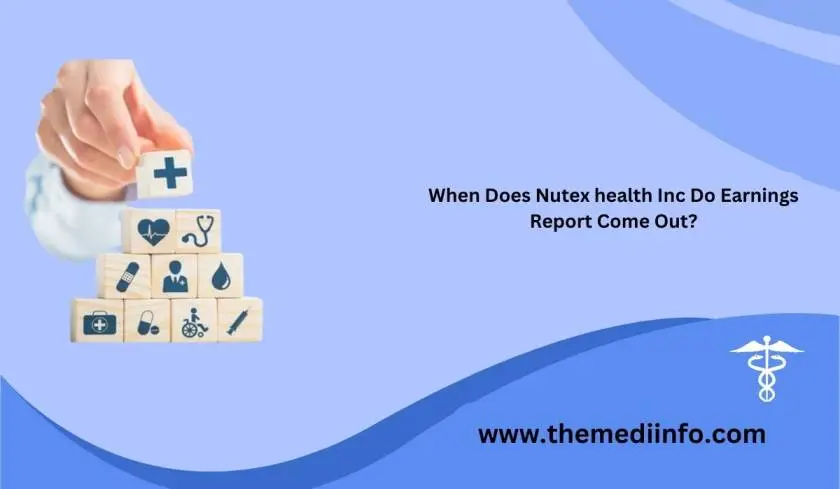
Musician, documentary maker, and entrepreneur, Stephen Manderson – AKA Professor Green – has never shied away from difficult subjects. In this candid chat, he opens up about echo chambers, activism, and his journey with gut health
Stephen Manderson became a prolific voice in the mental health conversation when he released his first documentary in 2015, Suicide and Me. Of course, mental health has always been part of Stephen’s life – both in regards to his own experience and that of his close family, including his father, whose suicide is a central topic in the documentary.
Six years on, and Stephen is still as focused on bringing mental health into the spotlight as he was in 2015. And, reflecting on the progress that both he personally, and the conversation at large, has made since then, Stephen believes that there is, equally, a lot more work to be done, as well as reasons to be hopeful.

Images | Courtesy of Aguulp
“When I was a kid, there was no conversation around mental health. The only time I ever heard ‘mental’ was when someone was getting cordoned,” he says. “That said, I think it’s a shame that, statistically, things are not getting better. We have to get to a point where conversations are actions. I saw this when I did the child poverty documentary Living in Poverty. I was literally just sitting in an echo chamber, everyone agreed with my thoughts and feelings on those subjects, and not one single member of government showed up. You have to get in the room with people who either think differently, or who don’t understand.
“I’ll go into prisons and talk to inmates – places where they have to put a face on and they’re not allowed to show emotion, because if they show any sign of weakness, it can land them in trouble,” Stephen continues. “There are a lot of people who are suffering with their mental health and they’re not aware of what to do, because in our culture it’s not really discussed – you’re not allowed to be weak. But owning your vulnerability makes you a stronger person than trying to suppress your feelings. Because whenever you try to hold anything down, it ends up coming to hit you sideways.”
“Owning your vulnerability makes you a stronger person”
As well as his ability to clearly articulate difficult subjects, one of the main reasons that Stephen is such a powerful voice in the mental health conversation is that he speaks from his own experience. That said, I wonder whether, when talking about mental health in the public space, there is a certain pressure to be the ‘after’ photo in a ‘before and after’ of good mental health? To have already conquered the challenges, and be speaking from the ‘other side’?
“I think that goes back to always wanting to fix things, whether it’s in other people or ourselves,” Stephen says. “There isn’t really a ‘before’ and ‘after’. Someone asked me how I got over my anxiety while being in the public eye – but I don’t think I’m cured. I don’t think my anxiety has gone away. And I actually think there have been points in my life where it’s probably saved my life – fight or flight, you know? We have fight or flight and it’s for survival, but you shouldn’t be just surviving.
You should be living and enjoying your life.
“I do believe that the only way to get through anything is to keep on going. That’s very matter of fact, but it’s also true. And sometimes progression is not a step forward, just a step backwards, or it’s a step sideways – it’s not a straightforward journey, not about mental health or gut health, either.”
Gut health and mental health are intrinsically linked, in ways many of us are just beginning to understand. Stephen’s journey with gut health began as a baby, when he had to have surgery to empty his stomach. Then, in 2017, his stomach was partially paralysed during surgery for a hernia. Throughout his childhood and into adulthood, Stephen would experience crippling stomach pain, IBS, and reflux. It was only later that he realised the physical symptoms he was experiencing were connected to his mental health.
“I had an operation when I was six weeks old, so every time I said, ‘Nan, I’ve got a belly ache,’ it would be straight to the doctor, and from the doctor to the hospital,” he explains. “They would do all these investigations, and would find nothing.”
“What I didn’t realise was that the tummy aches were actually anxiety – it took me until my 20s to work that one out”
Stephen was eventually given a diagnosis of irritable bowel syndrome (IBS), a condition that a study by the Mayo Clinic revealed is more likely to be experienced by those who have lived through trauma – be this divorce, bereavement, accidents, natural disasters, abuse, or any other kind of trauma.
“A lot of people who experience psychological trauma end up with IBS, and a lot of people with IBS suffer psychological trauma, so it’s a chicken and egg situation, and mine was a combination of both,” he continues. “My dad was in and out of my life, my mum was there more consistently, but she left home when I was a year old, and I was brought up by my grandmother. I was lucky. I know it doesn’t sound like a lucky situation, but I genuinely was.
“I was a bright child, but my school attendance was quite poor, largely because of my tummy aches. And what I didn’t realise was that the tummy aches were actually anxiety – it took me until my 20s to work that one out, and to draw any kind of link.”
With the benefit of hindsight, and a greater understanding of how the gut and brain interact, Stephen’s latest venture is dedicated to arming others with the tools they need to take back a degree of control over their physical and mental health. Teaming up with friend and entrepreneur Kevin Godlington, and supplement manufacturer Nutrivitality, Stephen has released a range of supplements with his new business Aguulp – which offers three liquid supplements targeted to support immunity, brain, and gut health, for better overall wellbeing.

Images | Courtesy of Aguulp
“They say, ‘you are what you eat’. Sounds simple, doesn’t it? But it really does have an effect,” Stephen says. “My great-grandmother always said, ‘A little bit of what you like, won’t hurt you.’ It’s always been the periods of excess in my life – I start to fall into a negative cycle. I wasn’t sleeping well because I wasn’t exercising. So my sleep was disrupted, and then I was eating crap, and they all went together.”
It’s a trap: lacking the energy to fuel our bodies correctly, and then as a result not having the energy to make a change. Stephen’s been there, too.
That said, it seems the key is to find the energy needed to break that cycle, however that may be. For Stephen, this realisation came to him after many years of pain and confusion. And others will have a similar story, as we are only just beginning to understand the complex, ongoing relationship between our bodies and minds. But by sharing his experiences, Stephen is part of the movement of people that are consolidating the experiences of many, and telling you – when things feel hard and you’re struggling to work out why – to trust your gut feeling.
For more from Stephen, tune-in to our podcast ‘I am. I have’
To learn more about your gut health and how to manage it or to speak to a nutritionist, visit nutritionist-resource.org.uk
Related Post
 06
06 Nov
What Type of Cancer Did Morgan Spurlock Have?
Morgan Spurlock, the producer and previous CNN series have whose McDonald's narrative Super Size Me was selected for an Institute Grant, passed on from disease confusions Thursday, as indicated by his loved ones. What Type of Cancer Did Morgan Spurlock Have? The.
Read More 24
24 Oct
When Does Nutex health Inc Do Earnings Report Come Out?
When Does Nutex health Inc Do Earnings Report Come Out? Today announced that Nutex Health Inc., Nutex Health" or the "Company," a physician-led, integrated healthcare delivery system comprising of 21 state-of- the-art micro hospitals in 9 states and primary care-centric. The.
Read More 16
16 Sep
The Role of Lifestyle in Anti-Aging Skin Care Products
Looking for anti aging skin care products can feel like a hit-or-miss insight. With so many options, it can be hard to choose. These dermatologist tips can assist you with shopping with certainty. Has your skin been harmed or has it matured altogether.
Read More 14
14 Aug
7 Essential Healthy Habits to Instill in Your Kids in 2024
In the high-speed universe of 2024, raising solid and balanced kids requires a blend of shrewd nurturing and adjusting to the most recent patterns. As guardians, it's critical to instill propensities that cultivate both physical and mental prosperity in our.
Read More